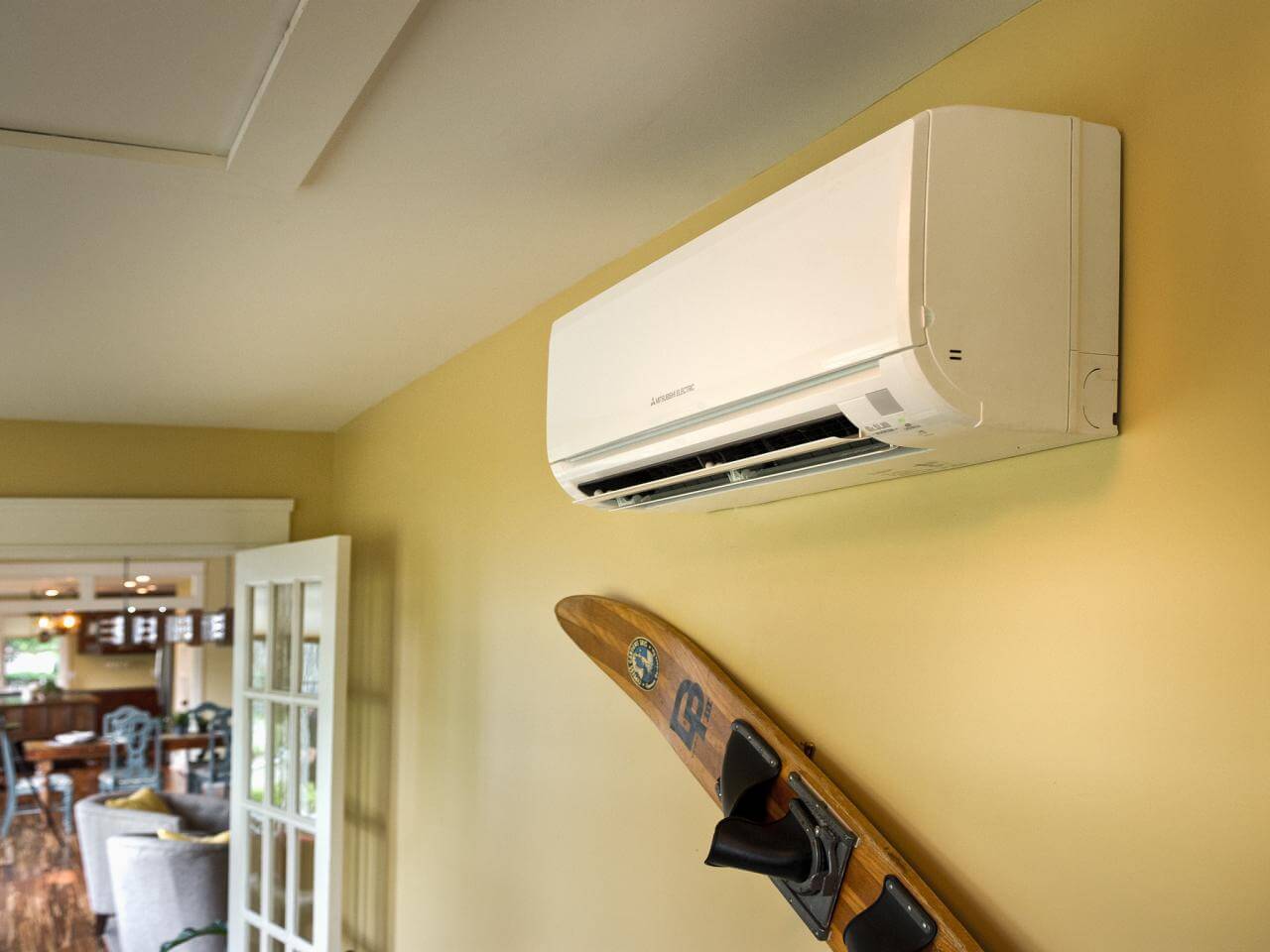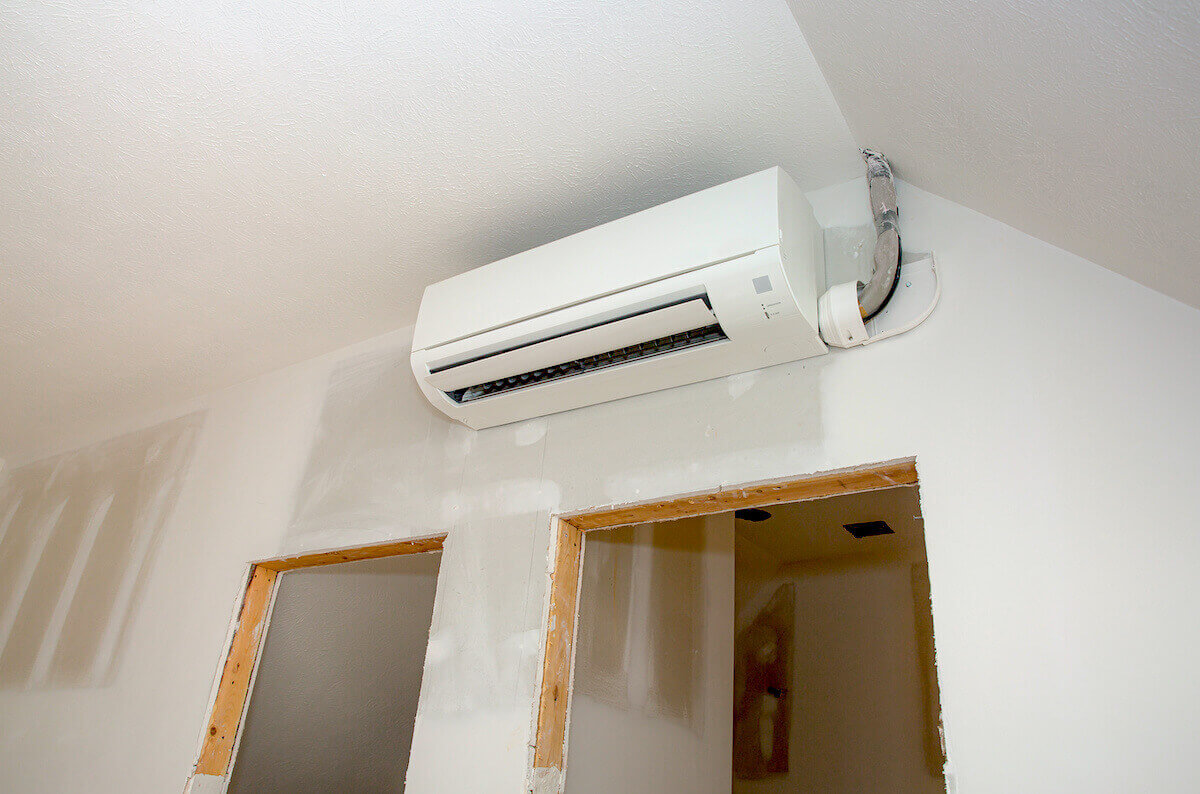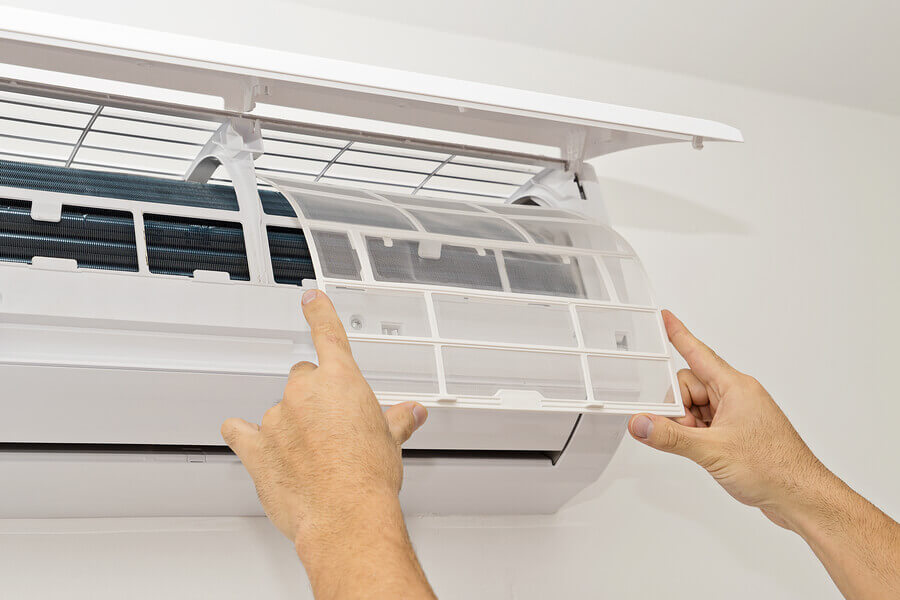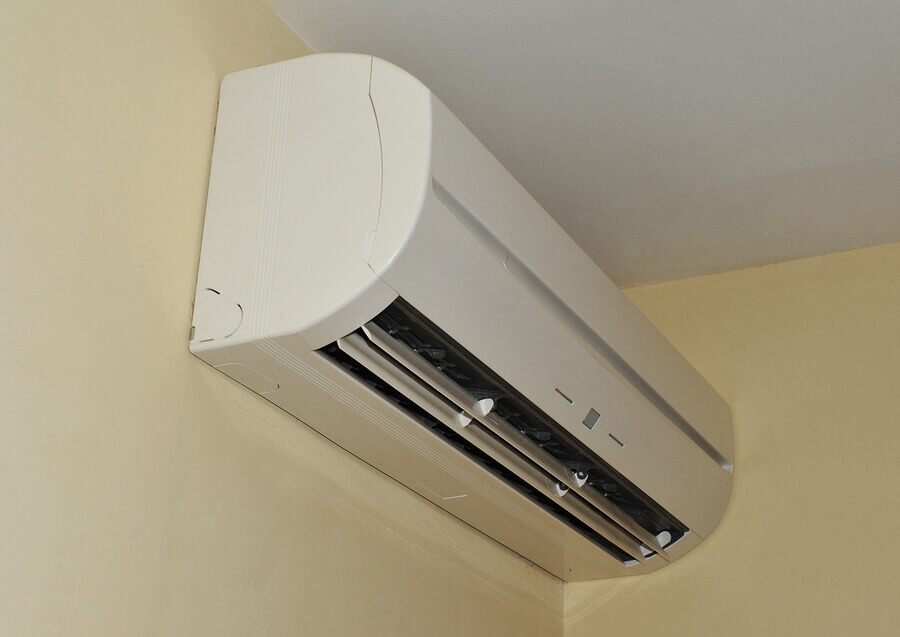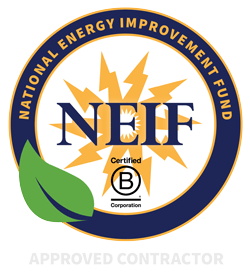5 Fast, Easy Tips For Ductless AC Maintenance
- Cooling
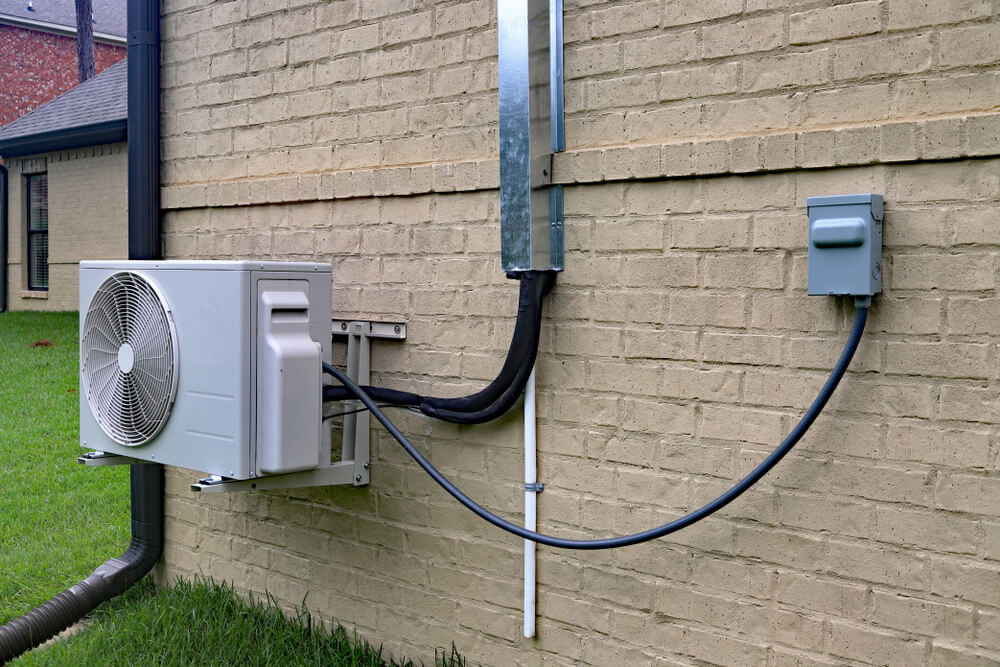
A ductless AC is extremely handy for homeowners looking for a more focused cooling effort in their home. Whether it’s a home office, a living room, bedroom, ductless ACs are fantastic for cooling the most-used areas of your abode with minimal costs to your overall energy bill. With some proper maintenance and TLC, your ductless AC can and will serve you well for years on end. But you need to know how to take care of it.
Keep the Exterior Unit Clean
As you’re probably aware, your ductless unit is comprised of the interior unit responsible for blowing the cool air into your home and the exterior unit where the air comes from. As it’s outside, the latter component is exposed to the elements on a regular basis. Rain, snow, sleet, animals, you name it your outdoor unit has to deal with it. An occasional sweeping of it, clearing it of debris, dust, and accumulated dirt. While you may not think so, keeping the exterior unit clean saves you and HVAC techs a huge amount of headache later on when you need more in-depth service.
Check the Filters
Filters prevent harmful, nasty particles from flowing through your HVAC systems. Things like dust, pet dander and even bacteria and viruses get caught in the filter and stop circulating in your home. That’s only if you have a functioning filter, however. Old filters get clogged up with gunk and refuse over time and stop working, allowing all manner of particles to float through your home. Thankfully, replacing your filters is a pretty easy process you can do with even a small amount of HVAC know-how. Depending on your unit, you may even be able to clean the filter you have with a dry cloth. The intrepid homeowner is going to want to check their air filters every month and a half or so.
Clear the Area Around the Interior Unit
While not nearly as bulky as other varieties of air conditioner, ductless ACs need some room to breathe. The interior unit needs a good amount of wall space to operate to the best of its ability. About four feet in every direction (aside from the wall itself) should be sufficient space to ensure optimal cooling. Make sure things like book cases, wall-mounted televisions, sofas, and framed photos are well out of the way from your AC to ensure nothing goes awry.
A Clean Condenser is a Functional Condenser
You may think internal cleaning is beyond what you’re capable of as a homeowner. So long as you know what you’re doing and are safe, personal cleaning of your ductless unit can be an extremely beneficial way to increase its lifespan and make it run smoother longer. Before you do anything, make sure the unit is completely powered down to avoid damaging components, or worse, injuring yourself. Once the condenser is powered down, you can use your garden hose (at low pressure) to clean off any accumulated dirt and debris from the unit. If left unchecked, this can clog up your fans and impede your AC’s ability to function properly. Once the water is dry, make sure the fins did not bend (they can be realigned with a simple alignment comb) and dust off any remaining matter by hand.
Call a Professional For a Regular Tune-up
We here at North Shore are all for the DIY spirit. But some things do require a professional touch. Calling out an HVAC tech every once in a while for a regularly scheduled inspection will help identify and isolate issues as they appear and before they snowball out of control. A visit from your friendly neighborhood HVAC professional every so often can save you a lot of money and headache down the line.
Contact North Shore Home Energy Today for the Best in HVAC Work!
Read The Great Things That Your Neighbors Are Saying About NSHEC.
ductless AC maintenance ductless ac maintenance

